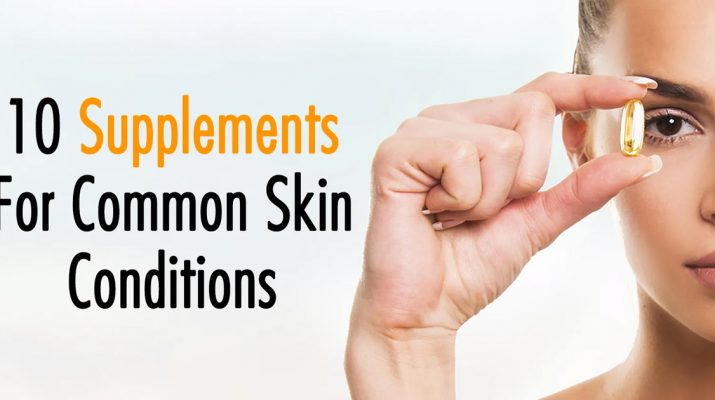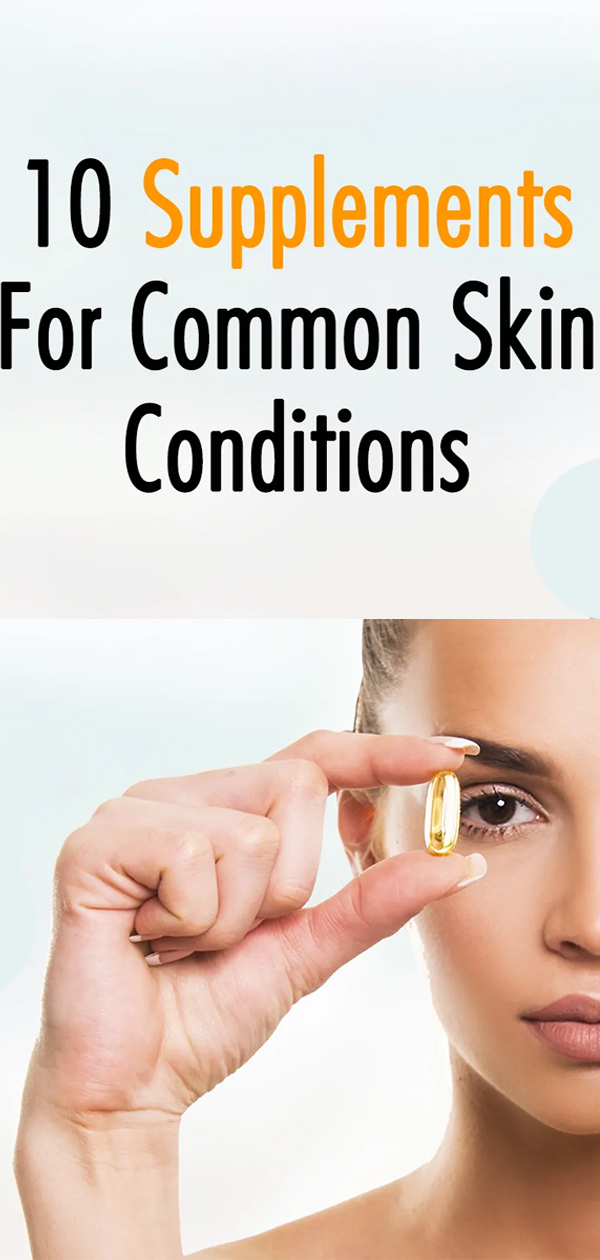If you suffer from skin conditions, you are probably familiar with the feeling of “I’ve tried everything and nothing seems to work!” Most skincare products on the market are substandard. Additionally, many are produced with only one goal in mind: to make a profit.
Consider this: in terms of revenue, the skincare industry doubles the cosmetics business. In 2019, the skincare market will have grown by more than 20 billion dollars in just five years. Keep this in mind the next time you fork over 100 bucks for some magic “overnight acne clearing” serum.
Here’s a little secret that these money hogs won’t tell you: that so-called secret formula often consists of nothing more than a few natural ingredients mixed together. Okay, so it may be a bit more complicated than that, but it’s fair to say that people can either eliminate or prevent most skin conditions – and without paying an arm and a leg.
Here Are The Top 10 Supplements For Naturally Treating Common Skin Conditions!
-
Antioxidants From Raw Honey
Raw honey (none of that manufactured stuff!) can do a bit of everything. Containing antibacterial properties and soothing texture, honey is perfect for reducing inflammation and healing cuts. Honey also pulls moisture into the skin, helping to “plump up” the thin layer around the eyes that tend to darken. Finally, honey contains alpha-hydroxy acid which helps exfoliate and moisturize the skin, making it the best natural anti-aging ingredient around!
-
Hydroxy Acid From Citrus
Like honey, citrus fruits contain hydroxy acid. Companies use hydroxy acid in their products for numerous reasons, including its firming effect on the skin. Lemon juice is commonly applied directly to the skin (i.e., “topically”) to help promote natural skin pigmentation. Topical application of citrus fruits, like lemon and grapefruit, is one option; another is to simply eat more citrus, which is packed with vitamin C – a powerful antioxidant that helps your skin look its best!
-
Vitamin A1 (Retinol)
Also known as retinol, Vitamin A1 is needed to hydrate and moisturize the skin. Vitamin A and its compounds are often referred to as “retinoids.” Multiple studies demonstrate the effectiveness of topical retinoids in treating acne and photo-aging (aging by sun exposure).
Excellent food sources of vitamin A include fortified dairy products, dark leafy greens, dark-colored fruits, and beef liver.
-
Bromelain And Papain (From Pineapple And Papaya)
Bromelain and papain are enzymes that act very similarly to alpha hydroxy acids. Found in fruits like pineapple and papaya, these two enzymes work by stimulating the skin in addition to exfoliating away dead skin cells. The result is skin that appears younger and much healthier. Topically apply homemade pineapple or papaya juice to achieve the best results.
-
Vitamin K
Certain nutrients are critical to treating skin conditions and promoting skin health. One such nutrient is vitamin K, which is thought to treat irritated skin, dark circles, pigment discoloration, rosacea, and spider veins. Excellent food sources of vitamin K include collard greens, kale, leafy vegetables, and mustard seeds.
-
Ascorbic Acid (From Guava)
The delicious guava fruit contains a whopping 120 milligrams of ascorbic acid, or vitamin C, which is more than double the recommended daily value set by the FDA. Vitamin C helps constrict the pores, giving the skin a firmer look and feel. Per the University of Oregon’s Linus Pauling Institute, vitamin C helps synthesize collagen, promote cellular health, and reducing skin damage caused by the sun’s UV rays.
-
Lycopene (From Tomatoes)
Lycopene is a potent antioxidant and anti-inflammatory that helps safeguard the skin from toxins such as environmental pollution. Look no further than a plump red tomato for a good dose of the stuff. Besides giving the tomato its beautiful red hue, lycopene helps protect the skin from UV radiation, fight acne breakouts, and reduce redness and swelling. You can consume tomatoes for the lycopene; you don’t have to apply it to your skin.
-
Water
While technically not a supplement, water is critical to treating skin conditions. Dry skin is often the result of a person not drinking enough H2O. Per the Mayo Clinic, men require about 15.5 cups of water daily, and women about 11.5 cups.
You may need a higher water intake if you:
- live in a humid environment
- are pregnant or breastfeeding
- engage in intense exercise
- have a high temperature or fever
-
Copper
Some claim that copper peptide is the most effective skin regeneration element around. Peptides from copper help regenerate and rejuvenate the skin, stimulate collagen and elastin production, and eliminate free radicals. Multiple studies confirm copper’s skin-softening and tissue-building properties.
Good sources of copper include avocados, beans and legumes, mushrooms, nuts, oysters, and seeds.
-
Ala
Alpha-Lipoic Acid (ALA), otherwise known as the “anti-aging miracle”, is perhaps the most potent natural skin supplement anywhere.
Topical application of ALA thickens the skin membranes, resulting in firmer and healthier skin. ALA also reduces swelling and puffiness of the face, resulting in a much more youthful appearance. Finally, ALA helps regulate the production of nitric oxide, which controls blood flow to the skin.


